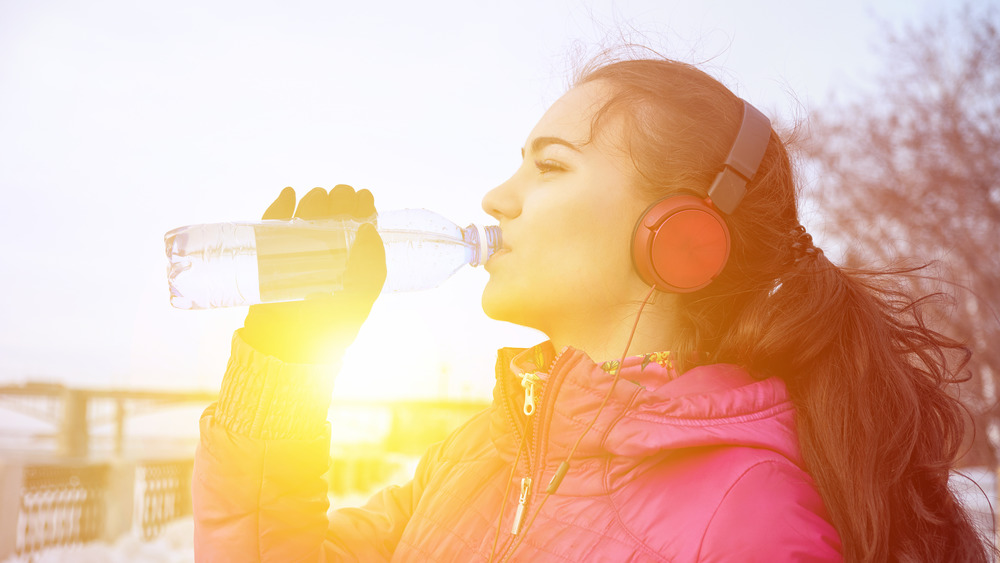Why You Feel So Dehydrated During The Winter
Feeling dehydrated in the winter? There's a good reason for that. According to a study from the Institute of Medicine, cold air has long been associated with the suppression of the thirst response and an increase in the elimination of bodily fluids.
When you're cold, the body constricts your blood vessels in order to maintain an optimal core body temperature. Because of the reduced flow, your brain doesn't receive the signal that you might be dehydrated as quickly. With the diminished thirst response, you're less likely to drink water voluntarily. Moreover, your kidneys won't know that they should be conserving fluid, so they increase urine production — a condition known as cold-induced urine diuresis (via Drip Drop ORs).
Environmental factors may be to blame as well. People tend to spend more time indoors when the weather is cold, where the temperature is regulated by heaters. Heaters produce dry air, exacerbating the effects of an already dry winter (via WebMD).
How do I stay hydrated in the winter?
The best way to manage symptoms of dehydration is to consciously increase your fluid intake. According to the American Heart Association, women should aim for 2.7 liters of water per day, while men should drink 3.7 liters a day. That may seem like a lot of water, but other beverages like tea, juice, and soft beverages count toward that daily intake. Many foods, like lettuce, zucchini, and bone broth also have high water content (via Healthline).
Try to avoid binge drinking fluids. Your body has a limit to how much it can process at once, so additional fluids will likely just be excreted (via Mana Medical Associates). You'll have the greatest health impact if you keep a water bottle with you and continue to sip throughout the day. If you use a space heater at home, pair it with a humidifier to retain moisture in the air (via Compact Appliance). Adding more moisture to the air and more fluids to your diet will help eliminate the discomfort that comes with feeling dried out, and will also reduce the risk of respiratory conditions.


